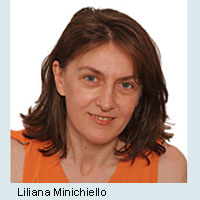Researchers identify memory molecule
Researchers have identified a molecule which plays a key role in learning, and mapped out the pathway through which it affects memory. Our sense organs are continually informing our brain of what is going on around us, and our brain cells communicate this information among themselves with electrical signals. The more often a cell experiences the same stimulus, the stronger the electrical signal becomes, allowing cells to distinguish between new and familiar information. This phenomenon, called long-term potentiation (LTP), is thought to underpin learning and memory. Its molecular basis is being investigated intensively. 'It is difficult to study a dynamic process like memory in the test tube,' said Liliana Minichiello of the European Molecular Biology Laboratory's Mouse Biology Unit in Italy. 'To assess if the molecular mechanisms that generate LTP also underpin memory formation you need to study a living animal while it is learning.' Together with researchers from the Universidad Pablo de Olavide in Seville, Spain, Dr Minichiello and her colleagues investigated the role of a receptor molecule called TrkB in learning in mice. TrkB is found on the surface of cells in the hippocampus, a part of the brain involved in memory formation. There it translates incoming signals into cellular responses involving a protein called PLCg. When faced with a familiar stimulus, the hippocampal cells generate an LTP. The scientists found that mice with a defective version of TrkB were unable to learn, and their hippocampal cells did not generate an LTP when presented with a familiar stimulus. 'TrkB and the PLCg activated signalling pathway are central to both LTP and learning,' explained Jose Delgado-García of the University of Seville. 'For the first time we have been able to prove that LTP and learning do in fact have a common molecular basis.' The research is published in the latest edition of the journal Learning and Memory. The team now plans to carry out further research into the role of TrkB in learning and memory; as the molecular pathways are probably similar across species, their work is likely to have implications for our understanding of human memory.
Countries
Spain, Italy



